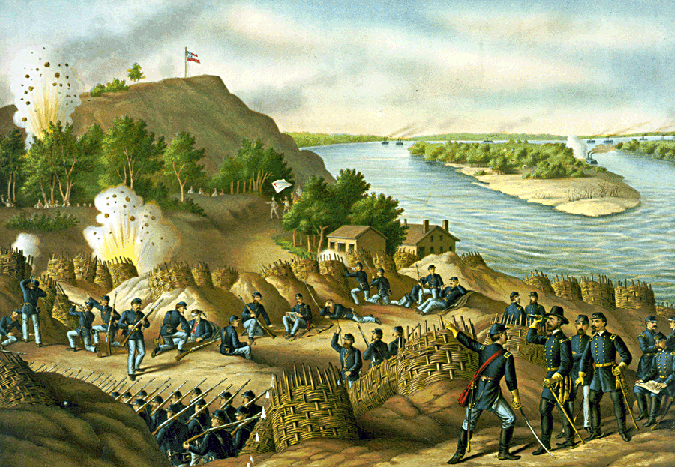The Battle of Gettysburg and Vicksburg were fought in 1863. The two battles involved Confederate forces and Union forces during the American Civil War. The Battle of Gettysburg was the second invasion by Confederate Gen. Robert E. Lee on the northern states. Gen.[1] Lee was capitalizing on a series of victories of the Confederates against the Union army. Lee was hoping that the invasion would force the north to negotiate for peace. The battle Vicksburg, on the other hand, was a siege that lasted between the spring and the summer of 1863. The Unions attacked Vicksburg, a stronghold of confederates cutting supplies such as food. The siege lasted for 40 days, and it ended with the surrender of the confederates and proved the genius of Gen[2]. Grant. Therefore, this essay will explore the impact of the Battle of Gettysburg.
The Battle of Gettysburg and Vicksburg became the turning point of the American Civil War. Both battles had a huge impact on the direction of the Civil. In Gettysburg, Gen Lee’s invasion failed to mark an end of his invasions of the northern states. In other words, Gen. Lee’s plan to make the north negotiate for peace had failed.[3] If Lee had won the battle, he could have matched his troops to Philadelphia or Washington, DC. Historians have argued that if Lee had succeeded, he could have surrounded that capital to disable the federal government.[4] Lee could have captured high government officials, including the president. Nevertheless, the invasion failed, making the battle the high watermark of the American Civil War. The battle of Vicksburg was also another significant victory for the Unions during the civil war. Vicksburg was located on a strategic position that allowed the control of River. Mississippi.[5] The occupations of Vicksburg allowed the Union forces to take control of the River Mississippi. River Mississippi was strategic, and occupation of Vicksburg became a strategic victory for Unions.
Lastly, the Battle of Gettysburg also revealed that Gen. Lee could be defeated. Gen. Lee had fought winning battles in the entire period of the American Civil War. The Unions had not recorded any significant victory against Gen. Lee before the battle in Gettysburg. Lee had led his troops to major victories, including Fredericksburg and Second Bull Run.[6] The successful victories had become a problem for Abraham Lincoln and his union generals. The failure had made President Lincoln release Union generals from the Army of Potomac. Gen. Lee, on the other hand, was able to inspire complete trust because of his wins. The trust made him invisible.[7] Therefore, the loss in Gettysburg was significant to the Unions because they showed that Gen. Lee was fallible. The Battle of Vicksburg, on the other hand, showed the genius of the Unions, including Gen. Grant. Grant besieged the Vicksburg and cut any form of reinforcements coming in, such as food. The siege lasted for more than 40 days making the confederates to surrender[8]. Grant’s move was regarded to be one of the most brilliant in the entire war. Gen. Granted was promoted to General-in-Chief of the Union troops.
In conclusion, the Battle of Gettysburg and Vicksburg were conflicts between Unions and Confederates in 1863. The battles were one of the major events of the American Civil War. The battles had a huge impact because they became turning the turning points of the war. The invasions also showed that Gen. Lee could be defeated plus showed the military genius of the Unions. Ideally, the impact of the battles gave the Unions a strategic advantage in the American Civil War.







